- Home
- slideshows
- miscellaneous
- 10 predictions Steve Jobs made about the future of tech that came true - and 2 he got totally wrong
10 predictions Steve Jobs made about the future of tech that came true - and 2 he got totally wrong
'We'll be using computers at home, for fun'

'We will all be connected through the computer'
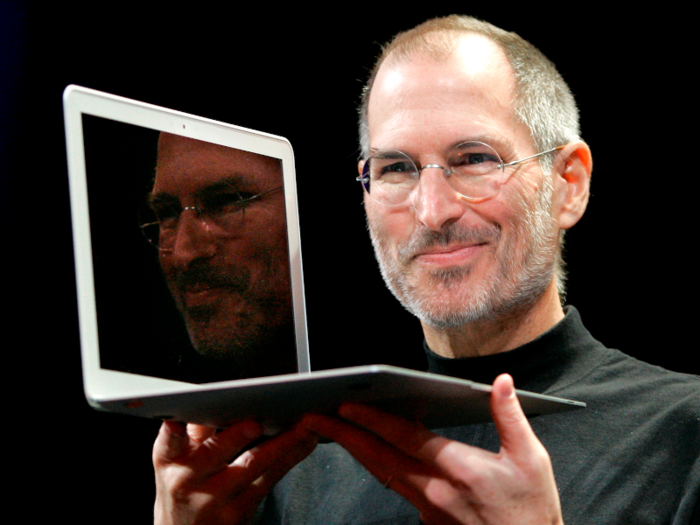
In the same interview, Jobs explained the most compelling reason for people to buy a home computer would be "to link it into a nationwide communications network."
His remarks came four years before Tim Berners-Lee's pioneering work to develop what became the World Wide Web, and five years before the first ever web page was posted online.
'It's much faster to do all kinds of functions, such as cutting and pasting, with a mouse'
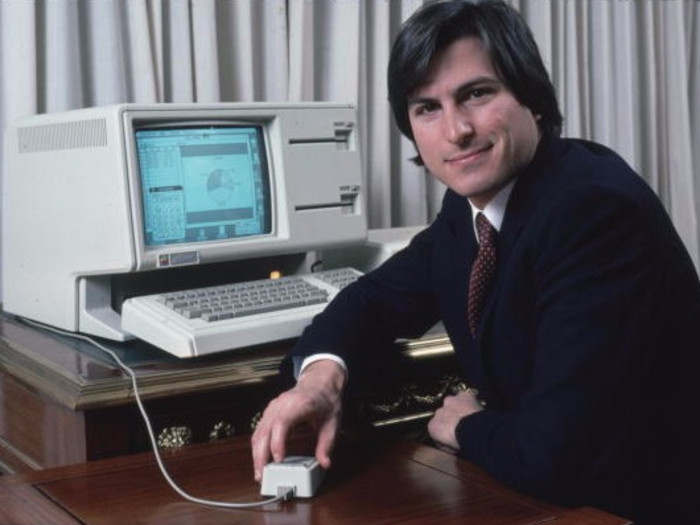
Before Jobs released his Lisa computer in 1983, most personal computers required instructions to be laboriously typed on the keyboard. When Jobs introduced his mouse — explaining to Playboy that "pointing is a metaphor we all know" — he made all those commands visually simple, even for those with little computer training.
Thirty-five years later, the mouse is something we take for granted in computing, and it's even become a little quaint thanks to advances in touch-screen technology, made popular on phones and tablets by Apple and other companies.
'There will be web dial tone everywhere'
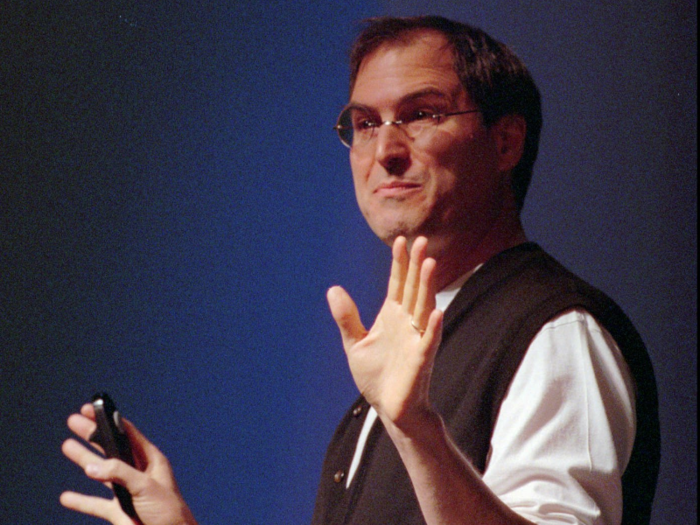
In a far-ranging interview with Wired magazine in 1996, Jobs prophesied that the web would be received and used by consumers across the globe.
We may be past the era of relying on dial-up internet access, but Jobs was spot-on with the ubiquity of the web.
As of April 2019, an estimated 4.4 billion people around the world use the internet. That's about 56% of the world's population, and 81% of the developed world.
'You may not have to manage your own storage'
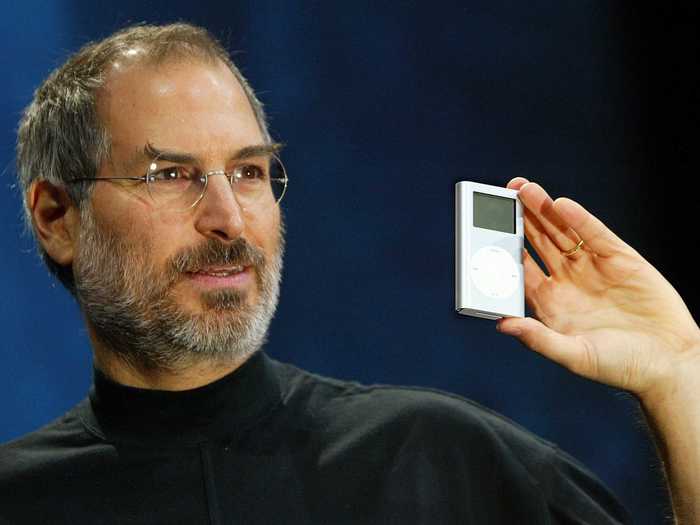
Long before we all started storing photos, videos and data in Apple's Cloud or on Google Drive, Jobs emphasized the need to provide customers with ways of dispensing with storage.
He told Wired magazine in 1996: "[Managing storage is] a very big thing in a desktop world. And that may go away. You may not have to manage your own storage. You may not store much before too long."
He added: "I don't store anything anymore, really. I use a lot of email and the web, and with both of those I don't have to ever manage storage. As a matter of fact, my favorite way of reminding myself to do something is to send myself email. That's my storage."
Apple's strategy is to 'put an incredibly great computer in a book'
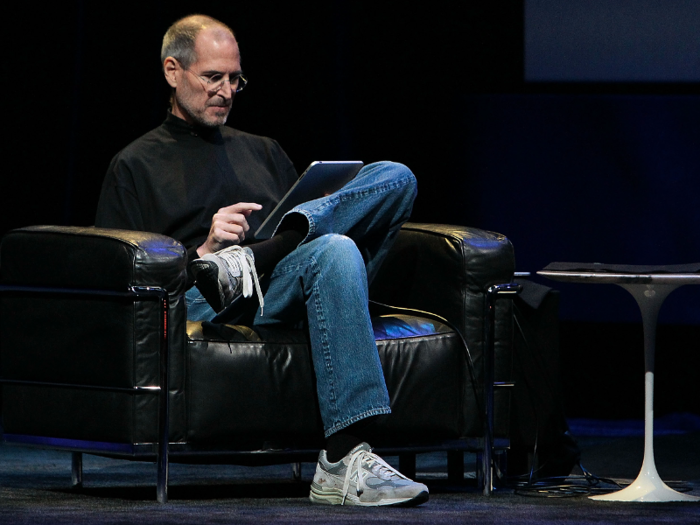
In 1983, most personal computers were big, heavy boxes in laboratories and workshops.
But in a speech at the International Design Conference in Aspen, Jobs had a vision of something much more mobile. He spoke of "an incredibly great computer in a book that you can carry around with you that you that you can learn in five minutes."
In an interview around the same time with Newsweek's Access the following year, he added: "I've always thought it would be really wonderful to have a little box, a sort of slate that you could carry along with you."
Cut to 2019, and that sounds a lot like a tablet, a Kindle, or a smartphone that fits in your pocket.
'It will be as if there's a little person inside that box who starts to anticipate what you want'
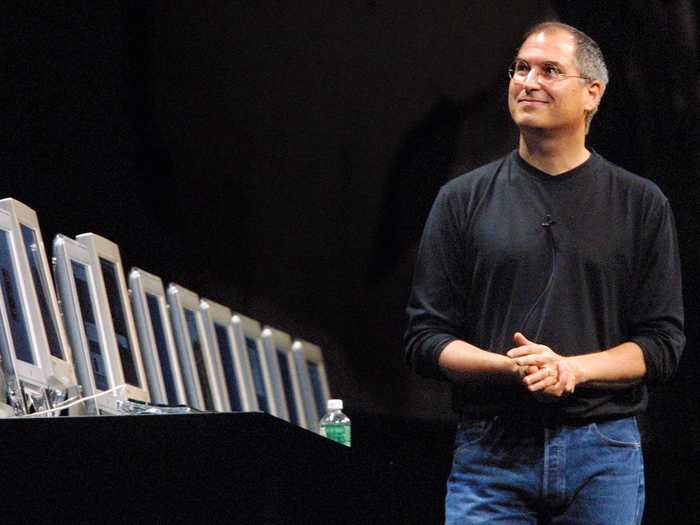
In the same interview for Newsweek, Jobs described computers as "agents," learning our interests, storing information, interacting with us and learning to anticipate our every need, becoming what Jobs called "a little friend inside that box".
Twenty-five years later, the likes of Alexa and Siri have all become indispensable digital helpers to millions of people. Joaquin Phoenix's romance with an AI virtual assistant in the film "Her" no longer feels like such a fictional pipe dream.
'People are going to stop going to a lot of stores. And they're going to buy stuff over the web.'
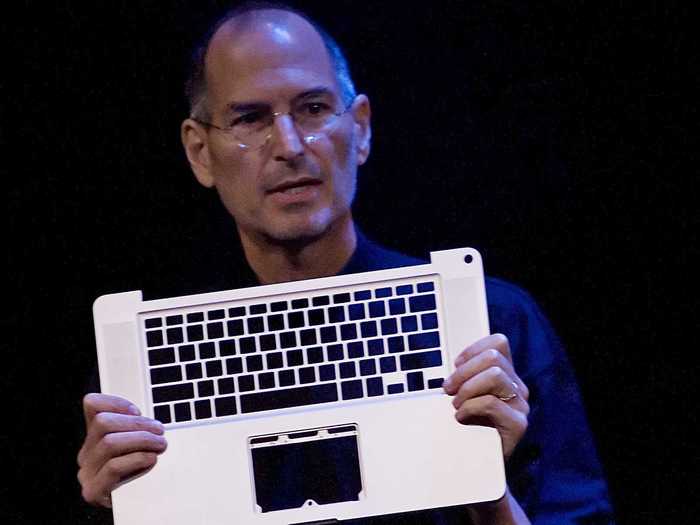
In 1995, Jobs gave a speech to the Computerworld Information Technology Awards Foundation, where he stressed the biggest impact of the web would be felt in commerce. He foresaw how the internet would allow small startups to cut down on distribution costs and compete with larger, established corporations by trading directly with the consumer.
Today, millions of companies trade on the internet, from tiny specialist suppliers to the behemoth of Amazon.
Jobs also predicted the cost of not getting on board with online commerce.
He told Wired magazine in 1996: "People are going to stop going to a lot of stores. And they're going to buy stuff over the web. Large companies not paying attention to change will get hurt."
Now, as we watch the likes of Walmart shuttering stores while Amazon continues to rack up billions of dollars in internet sales, they can't say they weren't warned.
'People will get more information than they can assimilate'
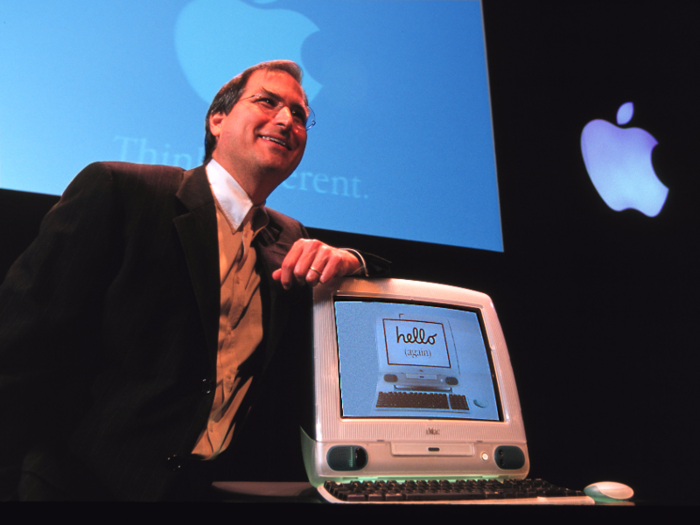
In 1996, when consumers were still experimenting with sending and receiving their first emails, it seemed inconceivable that we would be juggling more information than we could handle, despite Steve Jobs's warnings about information overload, delivered in his Wired magazine interview in 1996.
Cut to 2019, and the average American now checks their phone 52 times a day, according to a consumer survey conducted by Deloitte.
'You'd get one of these things when you were 10 years old'
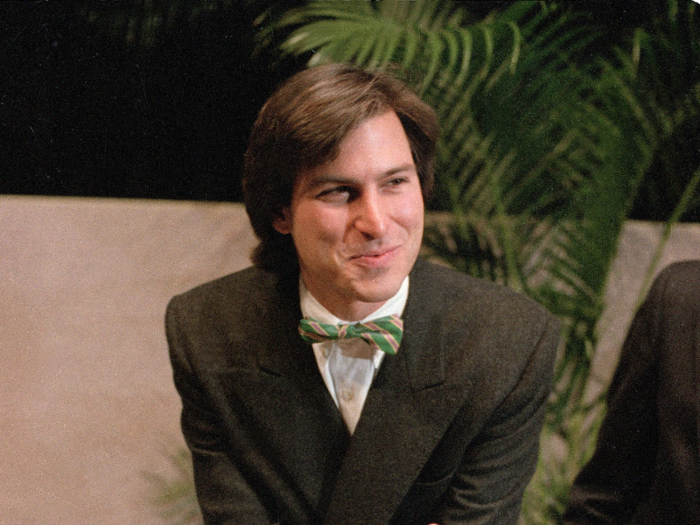
One of Steve Jobs' more unlikely predictions concerned the youth market's receptiveness to emerging technology, traditionally reserved for the deep pockets of their adult counterparts.
In his interview with Newsweek's Access, he explained:
"You'd get one of these things maybe when you were 10 years old, and somehow you'd turn it on and it would say, you know, 'Where am I?' And you'd somehow tell it you were in California."
How right was he? An Influence Central study reports that the average age at which an American child receives their first phone is now 10.3 years old.
But Jobs didn't get every prediction right. In 1983, he said, 'I think there will be lots of innovation in the areas of software but not in hardware'
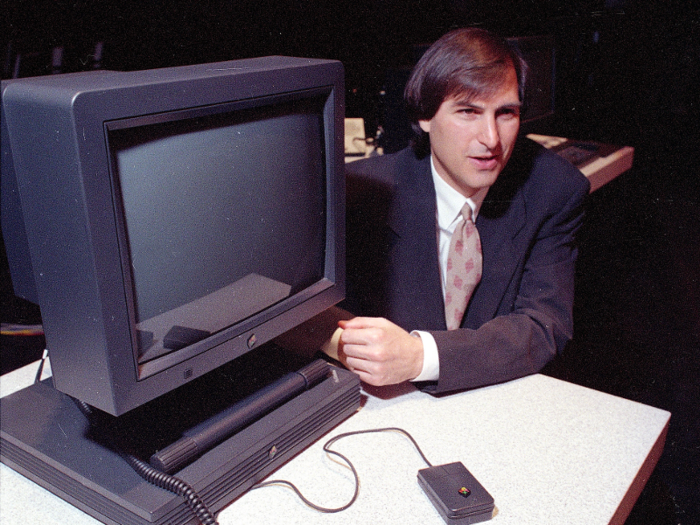
When Jobs spoke to Playboy in 1983, Apple's biggest rival in producing PCs was IBM.
So he didn't seem off the mark when he said, "I don't think there are going to be a lot of third- and fourth-place companies, much less sixth- or seventh-place companies. Most of the new, innovative companies are focusing on the software. I think there will be lots of innovation in the areas of software but not in hardware."
Actually, it was software giant Microsoft who soon outran the pack, leading to such an iron grip on the market that the US government eventually investigated it for anti-competitive behaviour.
Today, the biggest software spoils are shared between three big names — Microsoft, Apple and Google — while the hardware battle is waged further afield with Samsung, Dell, HP, Acer, and others all in competition. This is one that Jobs got wrong.
And he was wrong when he said, 'Is the web going to be a life-changing event for millions of people? No.'
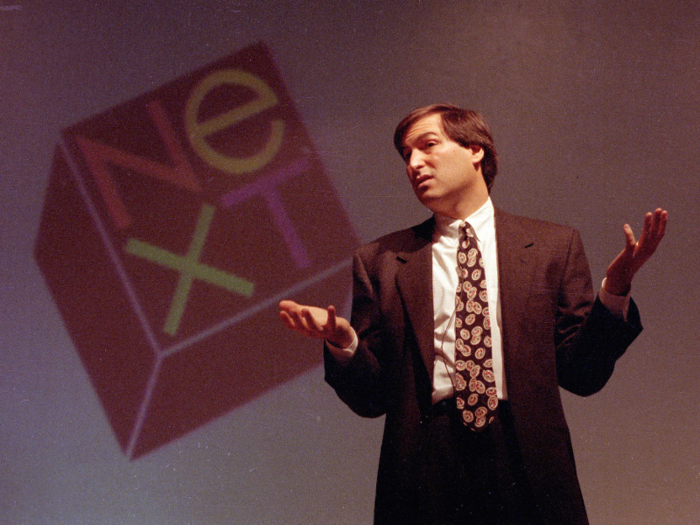
Bearing in mind all the details he got right, it's pretty amazing how Jobs underplayed the overall effect of all the technology he was championing.
Perhaps he was just being modest when he told Wired in 1996:
"The web is going to be very important. Is it going to be a life-changing event for millions of people? No. I mean, maybe. But it's not an assured yes at this point. And it'll probably creep up on people.
"It's certainly not going to be like the first time somebody saw a television. It's certainly not going to be as profound as when someone in Nebraska first heard a radio broadcast. It's not going to be that profound."
Bearing in mind how many of us rely on the web on a daily basis for our commercial needs, our social interactions, our entertainment, our knowledge, and our news, it seems this was one prediction that Steve Jobs got very wrong.
Popular Right Now
Popular Keywords
Advertisement